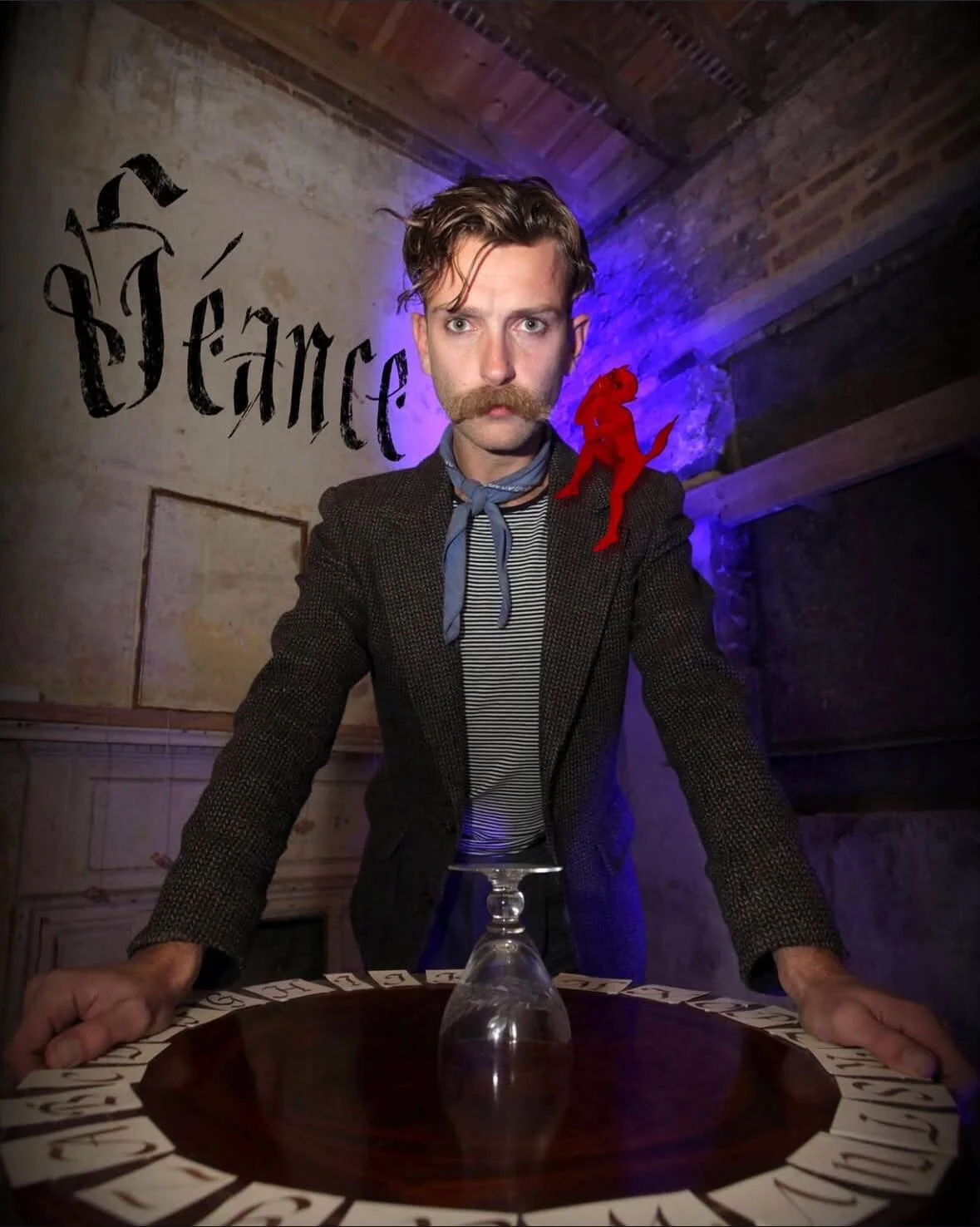Warning - Stories May Be Hazardous To Your Mental Health
The Contract
The house stood at the top of a small hill, the windows blacked out, the doorway heavy with shadow. You're standing with a group of people outside... waiting. Some chatting nervously, others standing in silence, but they all know the same thing: if they want to enter, they have to sign.
A contract is placed in front of them. Serious. Official.
By signing this document, you acknowledge that you are entering the premises of your own free will. You accept full liability for any harm, physical or emotional, that may occur as a result of tonight's experience.
It listed the risks - the house was old, the floorboards uneven, there were exposed nails in the walls. Guests were warned to step carefully, not to brush against the surfaces.
But that isn't all.
You may also experience sudden temperature changes, unexplained sounds, or physical contact. You may see or hear things others do not. You may find elements of this experience disturbing.
Some hesitate. Some laugh, looking around for reassurance. A few squint at the fine print, but in the end, they all sign.
And then, one by one, they step inside.
How do you feel walking into that house after signing?
The Play That Changed - But Only in London
Between 2023 and 2024, a play called ‘The Years’ toured across Europe. It was based on the writings of Nobel laureate Annie Ernaux and traced the lives of women across generations.
One scene, set in the early 1960s, depicts an illegal abortion. It's performed as a monologue - unflinching, yes, but not gratuitous. There's one brief moment of blood on stage.
When the play ran in the Netherlands, it passed without issue.
But when it transferred to London's West End in early 2025, something changed.
Night after night, audience members collapsed in the aisles. Some fainted before the scene had even reached its most intense moments. The play had to be regularly halted as staff carried unconscious theatregoers from their seats.
The production team had to prepare for this and a paramedic was stationed at every show. The theatre staff were trained in how to handle fainting audience members. This wasn't a one-off.
So what happened?
Are British audiences more fragile? Less emotionally prepared for difficult content? More prone to fainting than the Dutch?
No. That wasn't it.
The difference wasn't cultural. It wasn't about resilience or sensitivity.
The Contract Wasn't Just a Contract
Remember the contract at the beginning?
This actually happened.
And I was the one getting people to sign it.
You see, I used to host theatrical séances - immersive experiences designed to feel real. And that contract? It wasn't there for legal reasons.
It was an intentional part of the experience.
Because I understood something very simple: the storytelling nature of the mind.
That document didn't just inform - it set an expectation.
The moment they signed, the séance was already working.
It framed the experience, making it serious. It planted ideas in their heads before they even stepped through the door.
Even the sceptics weren't immune. Once you've signed something that says you might hear voices or feel a cold spot, your mind is already on high alert.
And it worked. These people felt things, saw things, screamed at the dark. They fully experienced ghosts and ghouls. Making contact with spirits through a Ouija board... and even spoke to them in trance.
And the best part? I didn't have to tell anyone what or how to feel. They did it themselves.
Why am I telling you this?
Because The Years did the exact same thing - without meaning to.
The Real Difference: The Trigger Warning
When ‘The Years’ toured the Netherlands, it ran without trigger warnings.
But when it transferred to London, the theatre made a decision:
In order to "protect" audiences, they added multiple trigger warnings.
There were warnings on the theatre's website. In pre-show emails. Even on the bathroom doors.
The intention was clear: to prevent distress.
But had they asked me, I would have told them exactly how that would play out.
Because just like my séance contract, the trigger warnings didn't just inform the audience - they set an expectation.
And the expectation being set was:
You are likely to be disturbed.
People walked in ready to be disturbed. Waiting for the moment that would break them. Some were already tense before the scene even began.
And so, when the moment arrived, their bodies reacted accordingly.
It wasn't the content of the play that made people faint.
It was the story they walked in with.
Seeing the Story Changes Everything
This isn't just about theatre.
It's about the stories we don't realise we're bringing with us.
A contract is just a piece of paper. A trigger warning is just a line of text.
Neither one does anything.
But when we don't realise we're adding a story to it, it looks like they do.
The audience members who fainted weren't weak. They weren't fragile. Nothing was wrong with them.
They just didn't see the story they were bringing in with them.
And neither do most of us.
But we could.
Because when you see the story, you don't have to be lost in it.
Final Thoughts
All those years ago. Hosting séances were the start of my insight into how we construct our experiences. They are not isolated. It's how we work.
This recognition - of how we bring stories to neutral experiences - is now what I help people uncover. To bring about a more peaceful life.
If you're ready to see the stories shaping your reality, to step out of the ones that don't serve you, let's talk.
Book a consultation, and let's find the freedom that comes when you're no longer bound by the stories you didn't even know you were telling.


